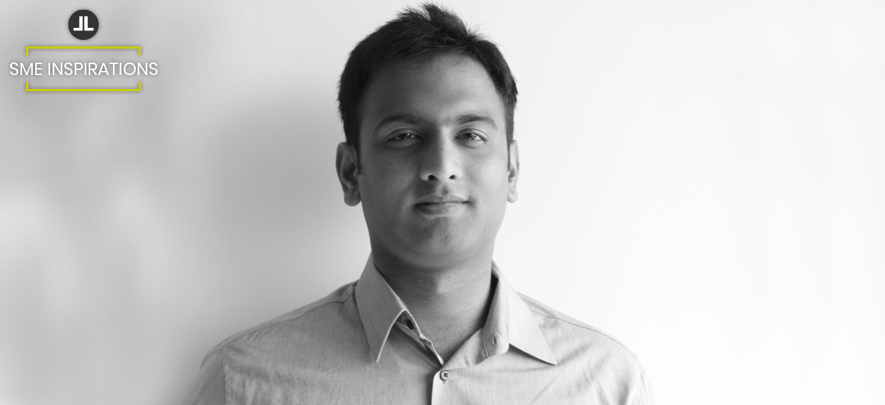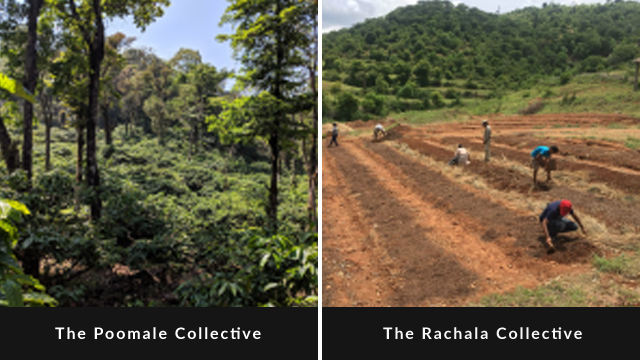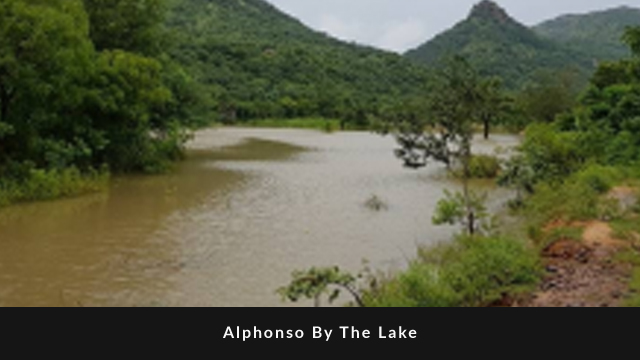Can farming be sustainable and accessible for all? Yes! Thanks to this entrepreneur

SME Inspirations
300 week ago — 9 min read
Enterprise: Beforest Lifestyle Solutions Pvt Ltd
Founder: Sunith Reddy
Industry: Agriculture & Agri Products
Year it was founded: 2018
Location: Telangana, Hyderabad
Meet Sunith Reddy, an entrepreneur and a farmer at heart who realised that even though more and more people are getting interested in farming, they are unable to do so due to their hectic lifestyle. An IIT Madras alumnus and a weekend farmer himself, he realised that reviving India’s agriculture is the need of the hour and started Beforest Lifestyle Solutions Pvt Ltd. Based on the permaculture approach, which is an innovative framework for creating sustainable ways of living, his initiative is not only helping people rekindle their interest in farming but is also working towards helping homeless farmers get a livelihood, where they help till and sow the land.
Sunith and his co-founders started this initiative with the ‘Farming Collectives’ where you can buy a piece of land as part of the community that together purchases few hectares of land in a particular farmland. The dedicated team then works together to grow the farmland and even build low footprint houses where you can stay and spend your days learning about farming and growing the land.
Started in 2018, they are successfully running four collectives, The Poomale Collective, The Rachala Collective, The Tamarind Valley Collective and Alphonso by The Lake namely.
In conversation with GlobalLinker (GL) CEO of Beforest Lifestyle Solutions Pvt Ltd, Sunith Reddy shares his business journey.
GL: Your business is indeed interesting and very unique. Tell us a little bit about your business journey. What motivated and excited you to start it?
Sunith: Today, there is a lot of interest in farming and growing our own food, etc. However, what I realised pretty early, since I was a weekend farmer as well, is that farming was a 24x7 job and it is not possible to make a farm viable if you are not attending to it everyday. I met so many people who bought a farm with great enthusiasm, but after a few years of trying hard, the fancy wears away and it goes into a limbo. I witnessed this happen over and over again. So I and my friends decided to take a closer look at this problem and see if we can reimagine a farm. That is when we came up with the idea of a collective, where a group of interested folks comes together and buys a larger landscape of 50+ acres and a couple of them manage it full time as a single estate. My initial experiment was with the same group of friends in Bangalore. Eventually the group expanded to 50 with one of us managing the farm full time. The members, could participate whenever they were free.
When we shifted our approach to being present at the farm, we learnt a lot more and saw how much more sustainable our practices could get. Today we draw heavily on permaculture principles to design and run completely self-contained, energy efficient farms. Over the course of one year, our soil got more fertile, we were using far less water and the landscape had transformed from dry and barren to a ‘forest in making’. When we saw this, we knew that this was an idea that had to spread. That’s how Beforest was born.

GL: What has been the most effective way of raising awareness about your business?
Sunith: Authenticity is best communicated by word of mouth. Today ‘green’, ‘organic’, ‘sustainable’, ‘ecofriendly’ are words that are overly used. Hence we heavily depend on a circle of trust that expands via word of mouth. A trusted friend validating our methods will go a far longer way than any certification on the packaging. This has served us well. Our collective members are our brand ambassadors spreading the word in their communities, offices, etc. We also host volunteer programs and workshops, which are open for all to showcase our practices and our farms.
GL: What are challenges for your business to grow bigger, better and faster from here? What are you doing to tackle them?
Sunith: The primary challenge is twofold. First is the unfamiliarity with the concept of a food forest. Unfortunately, a lot of people we speak to find it hard to comprehend that it is possible to have a productive farm that looks and behaves like a forest – does not even need organic inputs. A lot of awareness needs to be created about how beneficial permaculture is, how its benefits go beyond just food.
Secondly, separating value from valuation. Recently, we had wild papayas growing in our Bangalore collective. Papayas were selling locally at INR 7/kg and in Bangalore at INR 25/kg. Our cost of transporting the papaya to Bangalore was INR 20/kg. So the best valuation of that papaya was the village market – INR 7/kg. However the best value was if the staff ate it themselves. We want people to appreciate the value and not the valuation. We believe that a farm needs to first cater to the people who are working in the fields and then the surplus should be sold. This fundamental premise is broken today, where farmers are growing for the market and starving themselves.
I met many people who bought a farm with great enthusiasm, but after a few years of trying hard, they gave up. So me and my friends decided to take a closer look at this problem and see if we can reimagine a farm.
GL: You are a Linker. Which offerings of GlobalLinker have helped you? And why should other SMEs use it too?
Sunith: I think it is a great platform to connect and learn about other businesses one could collaborate with. It is a much needed platform which will go a long way in encouraging small businesses.
GL: What advice would you give to a new entrepreneur setting up their first business?
Sunith: One thing I would strongly recommend every entrepreneur is to critically analyse your idea and understand the execution. Someone once told me that ideas are dime a dozen. So, just a great idea is not going to cut it. Execution is equally important if not more. So you need to be your biggest critic and play devil’s advocate to your execution plan.
It is also important to understand the difference between people who think it’s a great idea and those who can’t live without it. As a young entrepreneur it is easy to believe in the optimism of your friends who may think it’s a nice idea you are working on. But what you are really interested in is the set of 10 people whose lives would be affected had your product not been around.
GL: What is the next big thing on your business agenda?
Sunith: We are currently setting up four collectives, including a wilderness collective in Coorg. We are also looking for areas where we could do a wilderness collective in Telangana state as well. We believe the next step in our trajectory will kick in the form of land management where we as a firm manage large estates/land banks and turn them into sustainable, productive landscapes.
GL: Can you give us a sneak peek into the life of the entrepreneur behind Beforest.
- Every day you wake up at? 6 AM
- The first thing you do when you wake up? Spend some time with my wife and my kid.
- Three things you do to unwind/ relax are? Netflix, spend time with family
- When you face a big challenge? I take a deep breath and try to zone out and take a third person’s perspective on the challenge. Very often we are too close to the problem, so I try to disassociate any personal feelings/agenda out of it.
- The best piece of advice you’ve ever been given is? No one is indispensable.
- The one book everyone should read is? Bhagvad Gita.
Interested in reading more SME Inspirations articles? Check out some of our articles here:
Third time proves lucky for this entrepreneur duo
The man behind the leaders of the 21st century
Necessity is the mother of all inventions, proves this mompreneur
Network with Sunith Reddy by clicking on the 'Connect' button on his profile.
Disclaimer: This article is based solely on the inputs shared by the featured member. GlobalLinker does not necessarily endorse the views, opinions & facts stated by the member.
Posted by
Supriya MathurAs part of the editorial team on GlobalLinker, I shine the spotlight on business owners who are doing exciting and innovative work by featuring them as part of our 'SME...
Network with SMEs mentioned in this article
View Supriya 's profile
Most read this week











Comments (1)
Share this content
Please login or Register to join the discussion